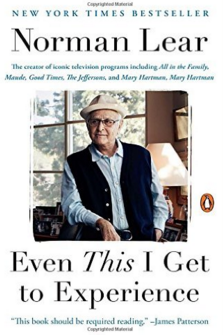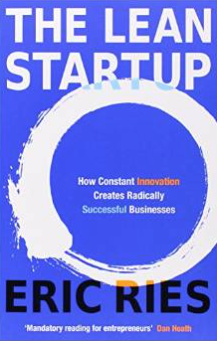I recently read “When I Stop Talking, You’ll Know I’m Dead: Useful Stories From A Persuasive Man” by Jerry Weintraub (with Rich Cohen). Below are the quotes I found most interesting. If you like the quotes, buy the book here.
 “Though he was selling rubies and sapphires and I am selling Clooney, Pitt, and Damon, the trick is the same: packaging. You might have the greatest talent in the world, but it doesn’t matter if you can’t sell it.” (8)
“Though he was selling rubies and sapphires and I am selling Clooney, Pitt, and Damon, the trick is the same: packaging. You might have the greatest talent in the world, but it doesn’t matter if you can’t sell it.” (8)
“When you dig through all the craziness of my life, you’ll see that I’m just a guy from the Bronx who knows how to a attract a crowd.” (8)
“At some point, you forget the object, and the means becomes the end. You work for the joy of the work.” (16)
“Relationships are the only thing that really matters, in business and in life.” (17)
“I saw the neighborhood with new eyes. It was no longer just streets and stores: It was needs and opportuinties, money to be made. Once you see the world this way, things are never the same.” (19)
“As soon as you feel comfortable, that’s when it’s time to start over.” (27)
“Do not get attached to the world as it is, because the world is changing, something new is coming, every ten years a big hand comes down and sweeps the dishes off the table.” (38)
“Grunt jobs are often the most instructive – they allow you to flow through an organization unnoticed, a corpuscle or cell moving in and out of the heart and lungs.” (39)
“The job of an agent is, in part, anyway, to bullshit and schmooze: How better to find talent than by seeing who can talk his way into a career?” (42)
“An idea is only crazy, after all, until someone pulls it off.” (52)
“A lot depends on who you know, who you can get to. If you have people who will open the door for you, literally and figuratively, you can make a pitch. It’s in your hands from there.” (65)
“Ther person who makes it is the person who keeps on going after everyone else has quit. This is more important than intelligence, pedigree, even connections. Be dogged! Keep hitting that door until you bust it down! I have accomplished almost nothing on the first or second or even the third try – the breakthrough usually comes late, when everyone else has left the field.” (76)
“Let the other guy save face with his people, but keep score.” (98)
“What had started as a ploy to snap Frank out of his depression had turned into a major deal – handled wrong, it could turn into a major embarrassment.
At such times, I become obsessed with details. That’s where God is, so that’s where I go, with my notebook and phone numbers and head full of ideas. The people, the angles, the chairs – I wanted to get everything exactly right.” (111)
“it’s best, when selling something new, to envision the goal – let the entire world hear John Denver – then work your way back. How do we get there? Now and then, it happens by itself. This is a matter of luck, zeitgeist. More often, you have to be creative, crabwalk your way.” (121)
“You can evolve and grow but you should never resent your thing. If you look at how few artists actually make it, you will recognize that those trademarks, though in some ways limiting, are a gift of providence.” (121)
“Know what you’re buying. Was I buying Nashville? No, I was buying Robert Altman. I did not understand the script, but Altman did, and it was Altman who was going to make the movie.” (164)
“Work with the best people. If you have the best writers, the best actors, and the best director and fail, okay, fine, there is even something noble in it; but if you fail with garbage, then you are left with nothing to hang your spirits on.” (167)
“I don’t care what kind of cast you have, how beautifully the thing is shot – if you don’t have the right script, you’re going to fail.” (179)
“Being successful means filling your life with calls you want to return.” (204)
“You have to be willing to walk away from the most comfortably perch, precisely because it is the most comfortable.” (204)
“I believe in not getting hung up or paralyzed in a quest for perfection, but by the same token, you have to identify what is truly important and hold out until you can get those things right.” (209)
“People think that Hollywood and politics operate in different spheres – they don’t. The world is very small at the top, with a few thousand players running everything. For a producer, an actor, a banker, a politican – name your celebrity – crossing genres is less a matter of making connections with the leaders of other industries than of climbing high enough in your own to reach the place where all lines converge.” (229)
“From Kennedy I learned that the best politicians are not different from movie stars. They charm, communicate, command. THe good ones never make you feel isolated or small, as if they have something you don’t. Quit the opposite. They include you in their world, enlarge you, make you recognize the best qualities in yourself.” (230)
“This is why politicians seek out movie stars, and why movie stars want to become politicians. They seek the same target, which is the soul of the people.” (231)
“People judge on first sight, so make those surfaces shine.” (245)
“Steve Ross said, ‘What are you worrying about? You are a talented guy. That talent did not go away. The company went away? So what! Companies always go away. They’re a dime a dozen. It’s talent that counts!” (248)
“I don’t care if you get flattened a thousand times. As long as you get up that thousand and first time, you win. As Hemingway said, ‘You can never tell the quality of a bullfighter until that bullfighter has been gored.’” (248)
Liked the quotes? Buy the book by clicking here.





